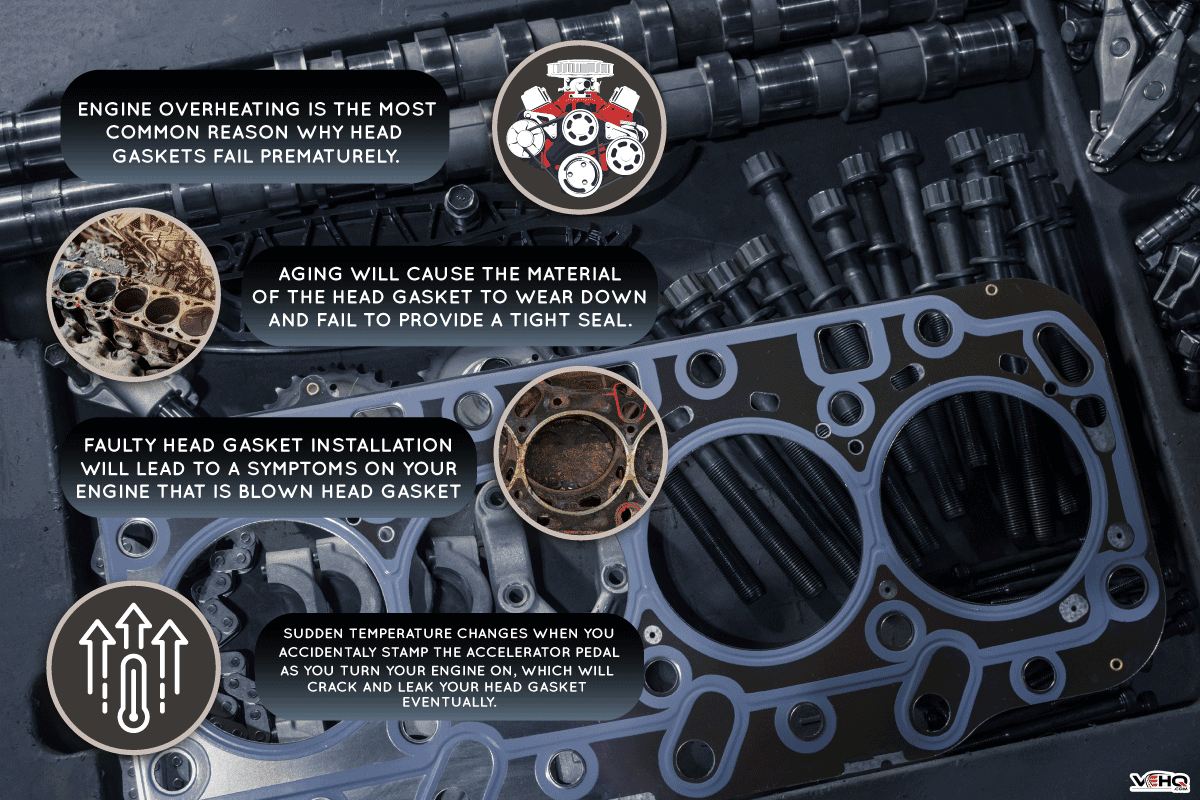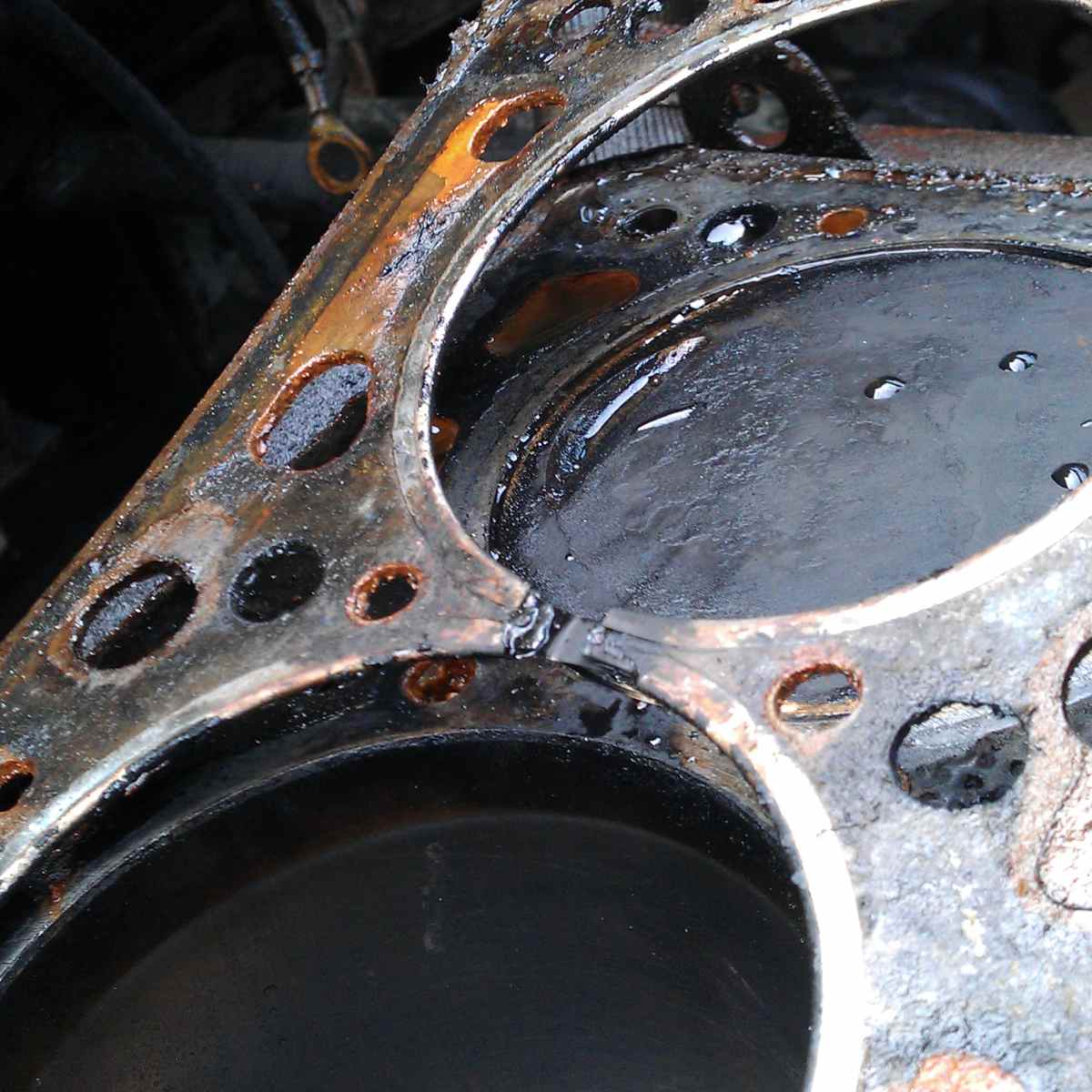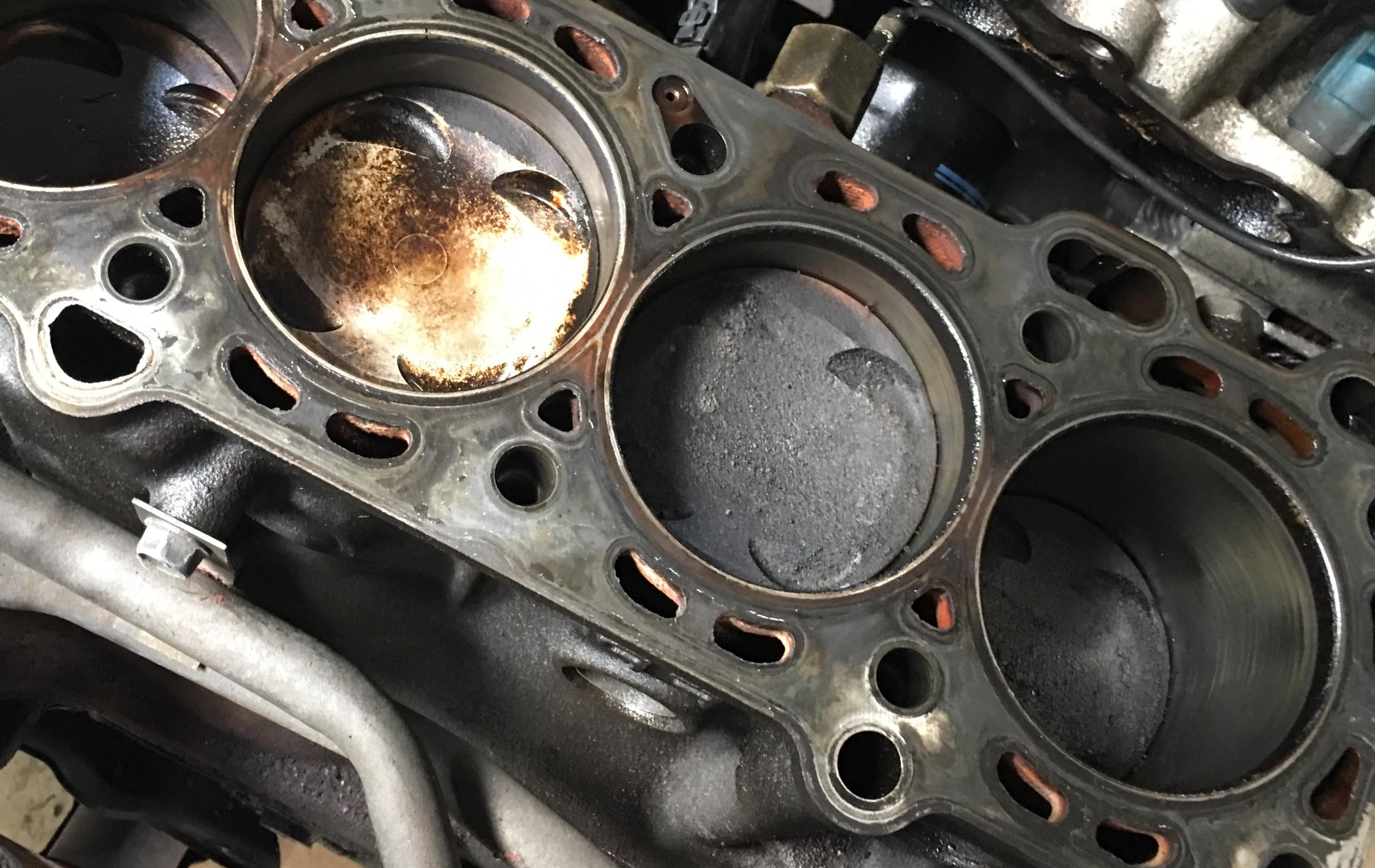“Curious about head gasket issues? Wondering if it’s possible for a head gasket to blow without any signs of overheating? Let’s explore this intriguing question in detail.”
Can A Head Gasket Blown Without Overheating?

This inquiry can be interpreted in two ways. If you’re asking whether a head gasket can blow without the engine ever overheating (as opposed to not overheating when a blown head gasket is already present), the answer is affirmative. This can occur due to a few reasons.
One reason is corrosion. Over time, the engine block, head, or head gasket can be corroded by coolant, causing the seal between the head and block to be compromised. When this takes place, a head gasket blowout occurs.
This typically happens due to failure to regularly change the coolant or use of tap water in place of distilled water in the coolant. As coolant ages, its corrosion inhibitors become depleted or break down.
Additionally, tap water’s minerals can cause corrosion. Draining the coolant from both the radiator and engine block routinely, and refilling with fresh distilled water and antifreeze can help prevent this issue. However, people often overlook the maintenance of their cooling system, despite being consistent with oil changes.
Another cause for blown head gaskets in the absence of overheating is the loosening of head bolts. This can happen due to repeated heating and cooling cycles, particularly if the engine is frequently run intensely, causing the head bolts to loosen or stretch. In either case, loose head bolts can compromise the head gasket seal, leading to a blown head gasket. It can also allow water to seep between the head gasket and the block or head, further promoting corrosion and disrupting the seal.
While the loosening of head bolts is not a frequent issue in most modern engines, it can occur. Some engines are more susceptible to this, especially if they run hot. Proper maintenance of the cooling system can help keep an engine cool, and engines prone to this problem might require periodic retightening of head bolts.
Does a blown head gasket always cause overheating?

Overheating
Frequent overheating of the engine (due to issues like a blocked radiator, coolant leakage, faulty fan, etc.) can lead to head gasket failure. Conversely, a failed head gasket can result in the engine overheating. Hot exhaust fumes can infiltrate the cooling system, or coolant can enter the cylinders and evaporate as steam, ultimately causing the engine to overheat.
Driving the car in an overheated state can also cause the alloy cylinder head to distort or the catalytic converter to be damaged by steam, considerably increasing the repair cost.
Decrease in Power
A compromised head gasket that permits compressed air/fuel to leak can result in reduced cylinder compression. This compression loss leads to a rough-running engine and a noticeable decrease in engine power. This type of failure usually accompanies a sound similar to an exhaust leak.
Oil Contamination
A distinct sign of head gasket failure is the appearance of a milky sludge on the underside of the oil filler cap or the dipstick, humorously referred to as a “milkshake” or “mayonnaise”. This is caused by the intermixing of coolant and oil. Although it’s not definitive proof of a head gasket failure, it’s typically a strong indicator and suggests that the engine needs to be dismantled to identify the source of the contamination.
The contamination of oil by antifreeze implies that any further driving can quickly damage the engine’s bearings. A comprehensive engine oil flush, along with a replacement oil filter, is required for repairs. Often, the engine’s bottom end also needs to be completely dismantled to ensure the bearings are intact and all contaminated oil is removed.
White Smoke
A malfunctioning head gasket typically results in clouds of sweet-smelling white smoke emitting from the exhaust. This smoke is the result of antifreeze leaking past the gasket and into the cylinders, where it’s converted into steam during combustion. A less common, but still plausible, situation is leakage from an oil passage to the cylinder, causing bluish smoke.
Both of these gasket failure types can also allow combustion pressure to infiltrate the cooling system or oil breather system. If a radiator hose suddenly pops off its water outlet, or the dipstick refuses to stay in place, this could be the cause.
External Leaks
When a cylinder head gasket blows between the water or oil passage and the exterior of the engine, it can result in a simple coolant or oil leak. This is the least severe form of a blown head gasket but is nevertheless important.
While an external leak may not immediately present as a problem (aside from creating a mess), allowing the coolant level to drop excessively can lead to significant engine complications. Furthermore, the leaking oil could reach the hot exhaust, producing pungent smoke and potentially causing a fire.
Will a bad head gasket overheat at idle?

When the engine is at idle, it depends on the coolant water for temperature regulation. However, a damaged head gasket can lead to coolant seeping into the engine block where it is subsequently burned. This condition is typically marked by a decrease in coolant levels and the engine overheating.
Can you have a bad head gasket and not lose coolant?

If a cylinder’s compression leaks into the cooling system due to a faulty head gasket, it can create excessive pressure in the cooling system. This can lead to engine overheating even if there is no apparent coolant leak.
An easy way to test for this condition is the following: Begin with a cold engine, ensure the cooling system is filled, and attach a cooling system pressure gauge. Start the cold engine and observe the gauge. If the gauge begins to rise before the engine warms up, there is a high likelihood of cylinder compression leaking into the cooling system.
The outcomes may differ. In the most severe case I’ve dealt with, the pressure gauge reached 26psi before the engine temperature hit 100 degrees.
In that specific vehicle, there was no visible coolant leak, no coolant mixing with the oil, and no steam emerging from the exhaust.
Can a head gasket fail suddenly?

The head gasket’s size adjusts based on the engine’s temperature. If you start your cold engine and immediately accelerate aggressively, the sudden change in temperature can lead to a head gasket failure. To avoid damaging the head gasket, let your car reach its optimal operating temperature before you engage in intense acceleration.
Yes, a head gasket can blow without overheating. Factors such as age, wear and tear, and improper installation can cause a head gasket failure, even if the engine does not overheat.
